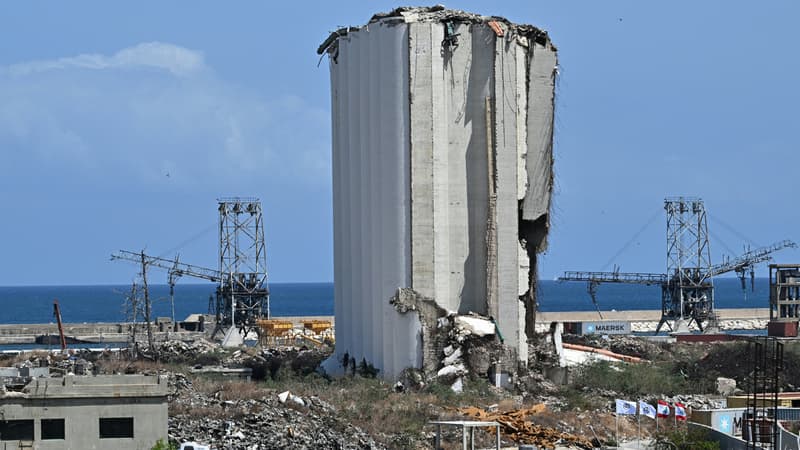Five years after the gigantic explosion in the port of Beirut in which the investigation has not yet succeeded, Lebanese president Joseph Aoun promised on Monday, August 4, justice would be done.
On August 4, 2020, one of the largest non -nuclear explosions in history devastated the entire districts of the Lebanese capital, killing more than 220 people and 6,500 injured.
This catastrophe, which has become the symbol of the culture of impunity, was triggered by a fire in a warehouse where tons of ammonium nitrate were stored with fertilizer, despite the repeated warnings to the highest officials.
Joseph Aoun said Monday that the Lebanese state was “committed to revealing the whole truth, regardless of obstacles or high positions involved.”
A National Duel Day
The day was declared Duel Day and National Meetings that claim that justice must converge to the port, where the silhouettes of the broken wheat silos still rise between cranes and containers.
“The law applies to all, without exception,” said the president in a statement, promising “transparency and integrity” in the survey.
“The blood of their loved ones will not be shed in vain,” he said, addressing the families of the victims, adding: “Justice comes, responsibility is approaching.”
A first responsible judge in 2020 of the investigation had thrown the sponge after accusing the former prime minister, Hassan Diab and three former ministers. The independent judge Tarek Bizar had resumed the investigation he had to interrupt in January 2023, facing the hostility of a large part of the political class, in particular Hezbollah, before being processed by insubordination.
After more than two years of the dead, the judge resumed his work at the beginning of the year. He has now completed his interrogations, including those of Hassan Diab and military officers and security services, while several former ministers convened have not appeared, a judicial officer on condition of anonymity told AFP.
“Political and judicial challenges”
The magistrate awaits an answer to information requests sent to several Arab and European countries, according to this official, in particular. The file once finished must be transmitted to the Prosecutor’s Office for your opinion before possible positions, he added.
Prime Minister Nawaf Salam, former judge of the International Court of Justice, said Sunday that knowing the truth was “a national question”, denouncing decades of official impunity.
The investigation of Judge Bitar was able to resume after the entrance to President Aoun and his prime minister, who promised to preserve the independence of justice, after the war between Israel and Hezbollah whose Shiite movement supported by Iran was very weak in the fall.
Human Rights Watch and Amnesty International emphasized on Monday that “the way to justice remains splashed from political and judicial challenges”, despite the resumption of the investigation.
Mariana Fodoulian, of the Victims Families Association, said that “for five years, officials tried to escape their responsibilities, still thinking that they are above the laws.”
“We are not asking for anything but the truth,” he told AFP, adding: “We will not stop until we have obtained global justice.”
Silos destroyed in a list of historical buildings
The UN Special Coordinator for Lebanon, Jeanine Hennis-Plasschaert, asked the authorities on Monday to take all necessary measures to accelerate legal procedures linked to the explosion. “
American and British embassies asked that responsibilities be established, while the European Union had emphasized Sunday that “ending impunity is essential for the recovery of Lebanon.”
On Sunday, the Minister of Culture, Ghassan Salamé, said that partially collapsed wheat silos would be included in a list of historical buildings. The families of the victims have long demanded their preservation as a monument. “The silos are the only witnesses of what happened on August 4,” said Mariana Fodoulian.
Source: BFM TV


